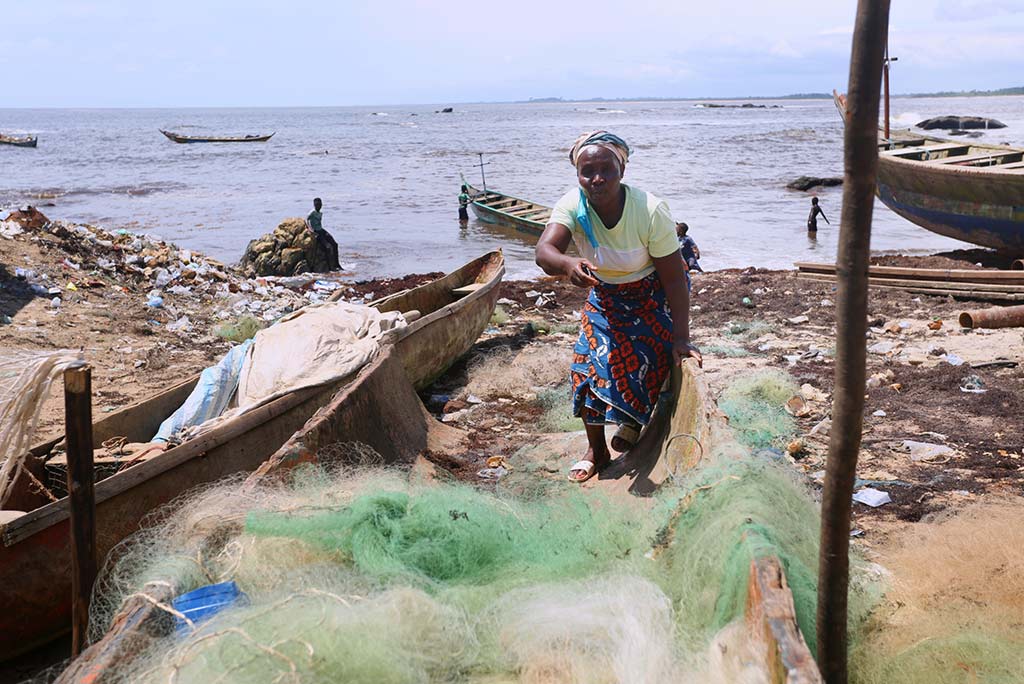“The lockdown cost us all of our money”
When covid-19 hit Liberia, Tupee Nagbo went bankrupt after 25 years of being in business: “No one would buy any fish, everything would just rot.”

Single mother Tupee Nagbo is one of many women worldwide heavily affected by the economic consequences of the covid-19 pandemic lockdowns. Not only did sales come to a halt, but Tupee also lost a lot of valuable equipment because of an accident which occurred close to curfew hours—a restriction which was put in place to halt the spread of the virus.
“When the boys came back from fishing, they noticed holes in the canoe. But there was no one on the shore to help them haul it. They were forced to abandon the canoe and jump in the water to head home,” says Tupee.
Because it was left unattended, the canoe split. Tupee explains it was one of the worst moments in her life. A canoe costs US 1,750 and she had worked for more than ten years to earn enough to buy her own canoe in addition to fishing equipment with the goal of running her own business. All of which now has been lost.
“The lockdown cost us all of our money, no one would buy any fish and everything would just rot,” she says.
After 25 years, Tupee went bankrupt. As a single mother of seven, she is now struggling to stay afloat.
Unequal economic structures
Tupee wants the world to know that the global pandemic has severely affected women. Oxfam released a report earlier this year, stating that 112 million women are at risk of losing their incomes and jobs because of unequal representation in sectors negatively affected by the covid-19 crisis. For example, incomes from family businesses, such as farming or fishing, is one of the categories disproportionately affected by the shrinking economy.
“Many women were depending on me, on selling fish through my business. Because I lost my canoe, most of the women don’t have anything to do. The pandemic has brought us a real set-back,” says Tupee.
Leader in the community
Tupee is chairlady for the Fanti Town Community and it’s within her leadership role that she came in touch with Kvinna till Kvinna’s partner organisation WORIWA. Through them she has taken part in various leadership trainings.
“WORIWA came to our community and opened the Community Rights Committee to train women to know their rights. They taught us plenty of things, including how to involve men,” says Tupee.
Tupee explains that usually, when men see women in power, they want to undermine them. But since she started applying what’s learned from the trainings, she’s had much more success in her role as chairlady.
Despite the hardship of the pandemic, Tupee wants to be a role model for keeping spirits high.
“I want to encourage other women to look around and start doing something, though things are hard in the country. Keep faith and don’t think that all hope is lost,” says Tupee.
Kvinna till Kvinna has worked for women’s rights in Liberia since 2007 and we have an office in Monrovia. We support and work with several local partner organisations, including WORIWA, to enable women to be empowered and defend women’s rights. Read more about our work in Liberia.